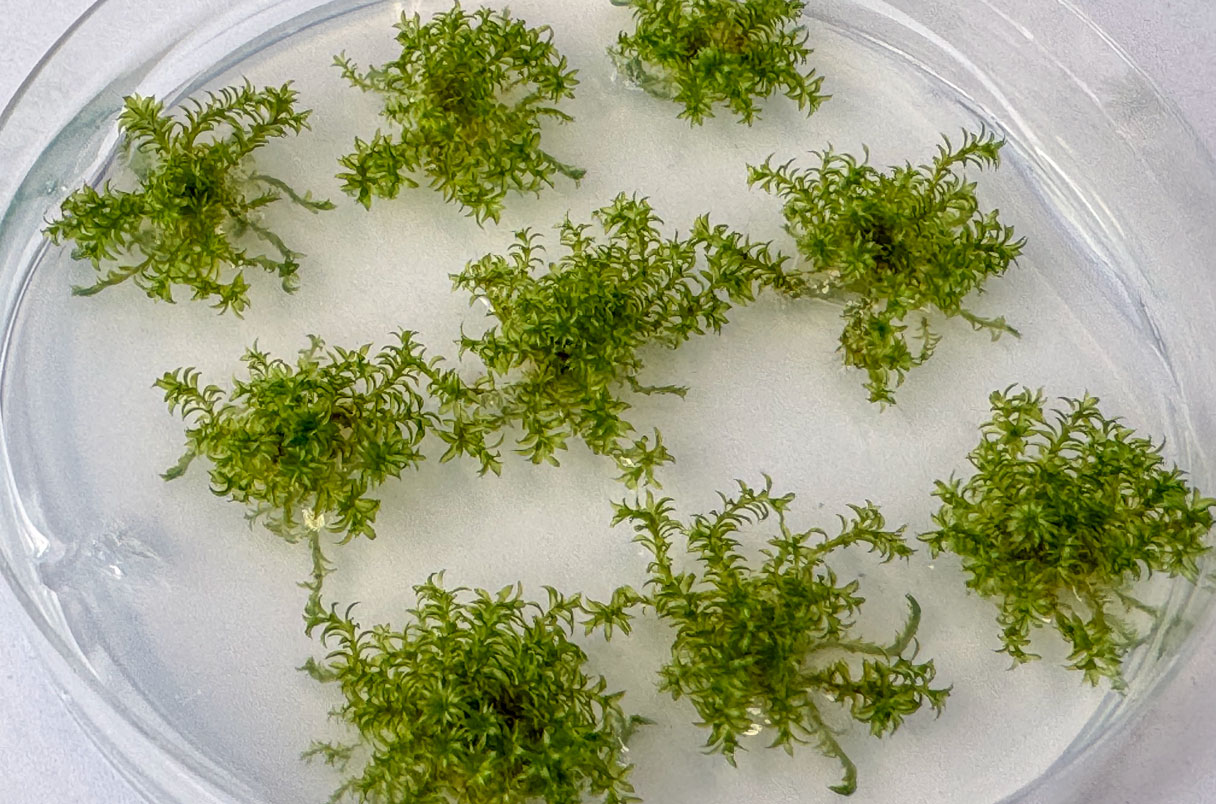
Redesigning Genome May Turn Moss into a Biofactory of Medicines
February 21, 2024| |
Experts from the Chinese Academy of Sciences and partners reported in Nature Plants about their breakthrough in developing the first artificial plant genome. To date, they have developed a partially synthetic version of the spreading earthmoss (Physcomitrium patens) chromosome. This big leap can turn the moss into a factory of medicines and other products.
Redesigning an organism's genome is vital in understanding which sequences are important and how their organization impacts gene functions. This technique can also add value to organisms by improving their traits for agriculture, industry, and medicine, among other applications.
The research team, referring to the project as SynMoss, initiated the redesigning of the genome with a portion of the short arm of chromosome 18, the smallest arm in the plant's 26-chromosome genome. Then, they trimmed the DNA, “cleaned” it by removing transposons, added markers to the altered arm, and made more tweaks. In the end, the portion of the DNA was shortened by 56%. The synthetic structure was then introduced into individual moss cells for growth.
The researchers have successfully utilized spreading earthmoss as a biofactory for valuable chemicals. Currently, a drug created from genetically modified versions of this moss is undergoing clinical trials, demonstrating the potential of this approach.
Find out more from Nature Plants and Science.
| |
You might also like:
- Overexpression of Moss Gene in Cotton Enhances Yield and Fiber Quality
- Scientists Use Prime Editing in Potato and Moss
- Research on Mosses Provides Better Understanding of Plant Cell Biology
Biotech Updates is a weekly newsletter of ISAAA, a not-for-profit organization. It is distributed for free to over 22,000 subscribers worldwide to inform them about the key developments in biosciences, especially in biotechnology. Your support will help us in our mission to feed the world with knowledge. You can help by donating as little as $10.
-
See more articles:
-
Plant
- CRISPR Boosts Immunity and Yield of Wheat
- Redesigning Genome May Turn Moss into a Biofactory of Medicines
- Australia Approves Commercial Planting of GM Banana
- Bioluminescent Petunias to Enter US Market for the First Time
-
Animal
- Uruguay Considers Gene Drives to Combat Screwworms
- Scientists Grow Meat Inside Rice Grains
-
Food
- Murdoch University Team Identifies Genes in Peanut with Potential for Improvement
- Pinoy Biotek Seminar: PCR Based Detection Kit for Salmonella on Meat
-
Health
- Antibiotic Combats Drug-Resistant Bacteria
-
Read the latest: - Biotech Updates (February 11, 2026)
- Gene Editing Supplement (January 28, 2026)
- Gene Drive Supplement (February 22, 2023)
-
Subscribe to BU: - Share
- Tweet

